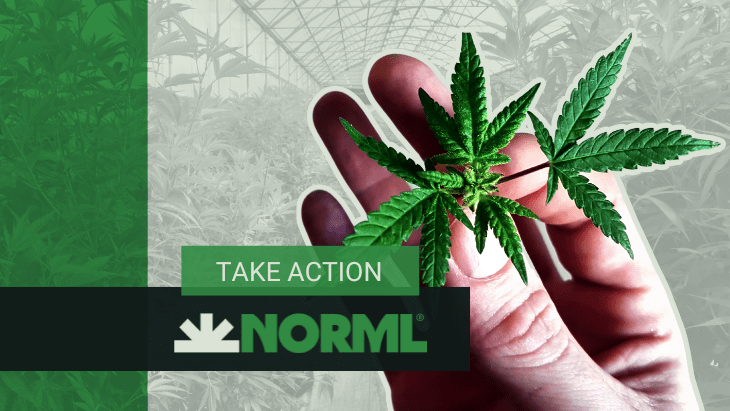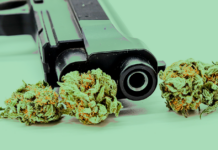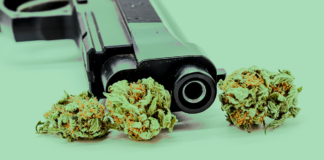
Marijuana reform legislation continues to advance in several states. This week’s update highlights legislative developments in Florida, Maine, Maryland, Missouri, Nevada, New Hampshire, Ohio, Pennsylvania, Vermont, and Washington.
LEGALIZATION
New Hampshire
UPDATE: HB 639 and HB 360 were both previously passed members of the House of Representatives. However, yesterday members of a Senate Committee voted 3 to 2 against the measures. Nonetheless, they will still move to the floor for a full vote despite the procedural defeat.
As amended, HB 639 allows adults 21 and older to purchase, possess, and gift up to four ounces of cannabis. The newly renamed Liquor and Cannabis Commission is responsible for regulating the marijuana market and issuing business licenses. Localities can limit or ban marijuana businesses from operating in their area.
Within 18 months of enactment, the state Department of Health and Human Services (DHHS) and the commission must develop regulations allowing existing medical cannabis dispensaries to apply for dual licenses to start serving adult consumers.
House Bill 360 legalizes the possession and use of cannabis for persons over the age of 21. It strikes most all current references to cannabis (marijuana) in the state’s Controlled Drugs Act.
Send a message to support this effort.
Pennsylvania
HB 1080 allows adults 21 and older to possess, consume, cultivate, and purchase cannabis through a state-store system run by the Liquor Control Board. Retail cannabis sales would be taxed at 19 percent, and all of that revenue would go into the state general fund. The bill would also create a distinct regulatory scheme for industrial hemp.
HB 1082 establishes a permitting process for commercial farmers to cultivate cannabis for the legal marketplace
Send a message to support this effort.
MEDICAL ACCESS
Vermont
UPDATE: HB 270 has passed the House of Representatives. It has also passed the Senate Committee on Economic Development, Housing, and General Affairs. It is scheduled for a hearing today before the Senate Committee on Finance.
House Bill 270 increases the number of plants that patients may cultivate at home, allowing for six mature and 12 immature plants. The bill increases the maximum allowable THC content in a single edible cannabis product from 50 to 100 mg, expands the list of qualifying conditions for medical cannabis treatment, increases the number of patients for whom a caregiver may provide services, and removes annual registration fees for qualifying caregivers.
Send a message in support of this effort.
ADDITIONAL
Florida
Update: Versions of HB 387 have passed the House and Senate. After differences are worked out in conference committee, the bill will head to the Governor’s desk.
House Bill 387 allows medical marijuana patients to renew physician certifications through telehealth. The Senate version of the bill also expands licensing opportunities to social equity candidates.
Send a message to support this effort.
Maine
UPDATE: LD 555 passed the House Committee on Veterans and Legal Affairs. It has been assigned to carry over to any special sessions and was scheduled for a work session on 5/8/23.
Legislature Document 555 amends existing home cultivation limits. Under the measure, adults would be permitted to cultivate up to six mature plants, 12 immature plants, and an unlimited number of seedlings (if the person is 21 or older and has adequate land).
Send a message to support this effort.
Update: LD 1647 was discussed in the House Committee on Judiciary, but members have yet to vote on the issue.
Legislative Document 1647 creates provisions prohibiting certain employers from discriminating against workers based solely upon a positive test for the presence of marijuana metabolites.
Send a message to support this effort.
Missouri
Update: SB 189 has passed the Senate and the House Administrative Oversight Committee.
Senate Bill 189 establishes clinics to assist those in need with the process of seeking expungement for applicable criminal charges and convictions involving cannabis.
Send a message to support this effort.
Nevada
UPDATE: AB 411 passed the House 29 to 13. It is pending a vote in the Senate Health and Human Services.
Assembly Bill 411 allows doctors to administer non-smoked formulations of medical marijuana to patients in certain hospitals, skilled nursing facilities, or hospice care.
Send a message to support this effort.
Ohio
UPDATE: SB 26 is scheduled for its second hearing in the Senate Judiciary on 5/9/23.
Senate Bill 26 amends the state’s traffic safety law so that those with trace levels of THC in their system can no longer be convicted of operating a motor vehicle while under the influence without further evidence of impaired driving.
Under existing law, persons are guilty of a traffic safety violation if they operate a vehicle with trace amounts of THC in their blood or THC metabolites in their urine — even absent any demonstrable evidence of impairment. Because both THC and particularly THC metabolites may be detectable for days or even weeks post-abstinence — long after any impairing effects have worn off — this law criminalizes virtually anyone who consumes cannabis, and state-authorized medical cannabis patients especially.
While SB 26 does not do away with these limits altogether, as we would prefer, it allows those charged under the statute to present evidence in court that they were not impaired and posed no legitimate traffic safety threat. By making such a change, impairment would simply be ‘inferred,’ but the limits would no longer be per se. Consequently, those defendants who provide evidence in court that they were not impaired to drive would be found ‘not guilty,’ regardless of their THC or THC metabolite levels.
Send a message to support this effort.
Pennsylvania
House Bill 1079 provides employer reimbursement to medical marijuana patients for up to $250 per month or a maximum of $3000 yearly for their cannabis medication, distributed quarterly.
Send a message to support this effort.
ENACTED
Maryland
Senate Bill 516 regulates cannabis sales for adults 21 and older, allowing select cannabis businesses to serve medical patients and adults. The bills create an avenue for on-site consumption licenses where consumers over 21 can purchase and consume cannabis in a social setting. Additionally, the legislation institutes certain parental and personal protections for medical and adult-use consumers.
The bill also increases the amount of cannabis registered medical patients may possess up to four ounces of flowers, 36 grams of THC-infused products, and up to four plants for home cultivation.
Washington
SB5123 makes it unlawful for an employer to discriminate against a job applicant solely based on their off-the-clock cannabis use away from the workplace.










